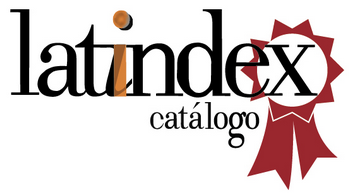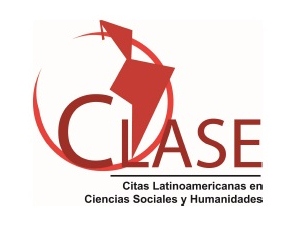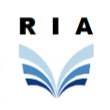Argumentación polarizada
Resumen
He defendido (Marraud (2023) que la deliberación pública es una forme de argumentación intragrupal que exige que los participantes se categoricen como miembros del mismo grupo. En este artículo pretende avanzar en la comprensión de los procesos argumentativos para mejorar nuestra comprensión de la polarización. Mi tesis es que lo característico de la deliberación polarizada es que se sirve sistemáticamente de mecanismos de inclusión y de exclusión en el grupo deliberativo, que se reflejan en el uso de los pronombres plurales.Citas
Bell, A. (2014). The Guidbook to Sociolinguistics. Chichester: John Wiley & Sons.
Broncano-Berrocal, F. y Carter, A. 2021. The Philosophy of Group Polarization. Londres: Routledge.
Edwards, A. 2015. (How) do participants in online discussion forums create ‘echo chambers’? The inclusion and exclusion of dissenting voices in an online forum about climate change, en M. Lewiński y D. Mohammed, eds., Argumentation in Political Deliberation, pp.127-150. Amsterdam, Philadelphia: John Benjamins.
Goffman, E. (1976). Replies and Responses. Language in Society 5(3), 257-313.
Hymes, D. 1971. Competence and performance in linguistic theory. En R. Huxley y E. Ingram, eds., Acquisition of languages: Models and methods, 3-23. Nueva York: Academic Press.
Komorowska, A. 2016. Pragmática del discurso electoral y el uso de nosotros. En Joanna Górnikiewicz, Barbara Marczuk e Iwona Piechnik, eds. Études sur le texte dédiées à Halina Grzmil-Tylutki, pp. 121-134. Cracovia: Biblioteka Jagiellońska.
Marraud, H. 2020a. Viaje por la argumentación deliberativa. Diálogo Filosófico 107, pp. 223-246.
Marraud, H. 2020b. En buena lógica. Una introducción a la teoría de la argumentación. Guadalajara: Editorial Universitaria de Guadalajara.
Marraud, H. 2022. Una modesta proposición para clasificar las teorías de los argumentos. Aitías, Revistade Estudios Filosóficos del Centro de Estudios Humanísticos de la UANL, 2(3), 21–47. https://doi.org/10.29105/aitas2.3-29
Marraud, H. 2023. Group identity in public deliberation. Informal Logic, Vol. 43, No. 2 (2023), pp. 224–256. DOI: https://doi.org/10.22329/il.v43i2.7686
Mohammed, D. 2015. Pursuing multiple goals in European Parliamentary Debates: EU immigration policies as a case in point, en M. Lewiński y D. Mohammed, eds., Argumentation in Political Deliberation, pp.48-74. Amsterdam, Philadelphia: John Benjamins.
Perelman, C. y Olbrechts-Tyteca, L. (1989 [1958]). Tratado de la argumentación. La nueva retórica. Versión española de J. Sevilla y M.Tordesillas. Madrid: Gredos, 1989.
Pérez Zafrilla, P.J. 2020. Polarización política, en J. Santibáñez, ed., Emociones, argumentación y argumentos, pp. 97-124. Lima: Palestra.
Reynolds, K.J y Turner, J.C 2006. Individuality and the prejudiced personality. European Review of Social Psychology, 17:1, 233-270
Riechmann, J. 2012. Sobre sustentabilidad y desarrollo sostenible. Cap. 4 de J. Riechmann, El socialismo puede llegar sólo en bicicleta. Ensayos ecosocialistas. Madrid: Catarata. Puede consultarse el fragmento de ese capítulo que yo he utilizado en https://seipaz.org/wp-content/uploads/06Jorge%20Riechmann%20SOBRE%20SUSTENTABILIDAD%20Y%20DESARROLLO%20SOSTENIBLE.pdf
Tajfel, H. y Turner, J.C. 1986. The social identity theory of inter-group behavior. En S. Worchel y L. W. Austin, eds., Psychology of intergroup relations, pp. 7-24. Chicago: Nelson-Hall.
Vega Reñón, L. 2013. La fauna de las falacias. Madrid: Trotta.
Una vez que un texto es aceptado para su publicación en Quadripartita Ratio, sus autores deben firmar dos documentos de carácter legal: una Licencia de uso y una Declaración de autoría.
Con la Licencia de uso, los autores autorizan la publicación de su obra y la difusión de ésta (integración en bases de datos, difusión en nuestras redes sociales, reediciones posibles, etc.). No obstante, se autoriza la descarga, reproducción y distribución de todos nuestros contenidos publicados, siempre que no se modifique el contenido y se indique su origen (nombre de la revista, volumen, número, páginas y dirección electrónica del documento).
Con la Declaración de autoría, los autores manifiestan que la obra es de su autoría, original e inédita.









